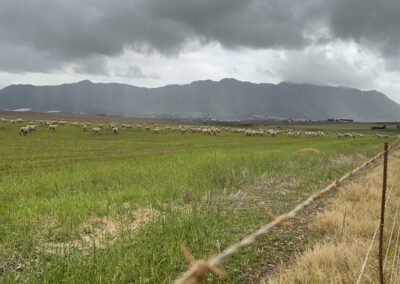By Danielle de Bruin, Programme Manager Mobility / Climate Neutral Group in The Netherlands
A car leasing company called us recently with a query around sustainability and transport. “We are not offsetting emissions because we think prevention is better” was one of the statements. Upon concluding our telephone conversation, during which we agreed on many points, one issue lingered on.
Prevention is better than offsetting: is that true? To find an answer, we will need to look at two things:
1. Can companies prevent climate change just by reducing their carbon emissions?
The answer is no. Reducing emissions is not enough. Of course, every little bit helps and lowering your overall emissions from your fuel consumption and energy use is something you should definitely do. This is however not where it ends.
After all, if your kitchen is flooding because you have left the tap open, you must close the tap and mop the floor. By reducing your company’s fuel and energy consumption, thus carbon footprint, you are closing your carbon emission tap only a little, say by up to 20%, if you are doing everything right.
The problem is that you can’t ignore the remaining 80%. A transition to electric transport could be a structural solution, but it could take many years before we reach that point. Do we have time to wait for this? I don’t think so. You can’t say: “I am sorry your kitchen is flooded. I will return next month to close the tap.”
2. Is there a difference between reducing emissions and offsetting?
The answer is no. Please allow me to explain why.
In the Netherlands, our infrastructure is largely based on fossil fuels. We fill up our cars with petrol and diesel and the bulk of our electricity is generated from coal. We all know how much effort it takes to change this: coal plants aren’t after all easily closed. In essence, we are all on the fossil fuel highway together, whilst making hairpin bends towards a more sustainable economy. Meanwhile, dozens of emerging markets around the world are developing rapidly, and are embarking on a similar path as the developed world a good few years ago. These countries will have to make the same hairpin bends in 20 years’ time to get rid their fossil fuels.
What is offsetting all about?
Offsetting means investing in sustainable energy projects in countries which are developing at a fast pace to prevent reliance on fossil fuels. One can, for instance, invest in wind turbines in India. With this, you are investing in clean, sustainable electricity grids from the word go – preventing emerging economies from becoming dependent on fossil fuels.
In other words, does offsetting equal reduction?
The answer is: yes. Offsetting is much more than closing the tap or mopping the floor. Offsetting your emissions means you are aware of the fact that greenhouse gases originate from several taps and that you have to close the largest, not just the most obvious. We essentially all benefit from offsetting.
The following day, I called the lease company and explained the above. The result? The firm in question is now one of our clean transport ambassadors in The Netherlands, and it is persuading their clients to offset their emissions. What about you?
The above is applicable to South Africa. Please contact us to see how your company can start reducing and offsetting its carbon emissions.



